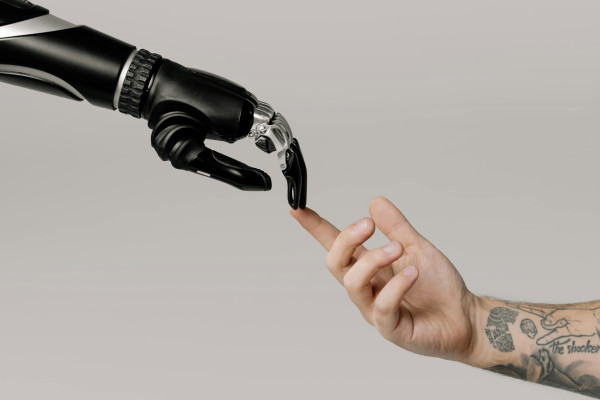In the era of human and AI interaction, a symbiotic relationship emerges, blending the unique strengths of human intellect with the computational prowess of artificial intelligence. This partnership transcends traditional boundaries, offering a synergistic fusion that enhances productivity, innovation, and problem-solving capabilities.
Humans bring to the table a profound understanding of context, emotional intelligence, and creativity, traits that are intrinsic to our nature. On the other hand, AI contributes its unparalleled speed in processing data, pattern recognition abilities, and capacity for executing repetitive tasks with precision. This amalgamation of human ingenuity and AI efficiency creates a potent alliance that propels us towards new frontiers of achievement.
Together, humans and AI form a dynamic duo, each complementing the other's limitations and amplifying their strengths. As we navigate this evolving landscape of technology and human endeavor, nurturing and optimizing this relationship holds the key to unlocking a future where innovation knows no bounds and challenges are met with unparalleled resilience and ingenuity.
In today's fast-moving world, the fusion of human intelligence with artificial intelligence (AI) has emerged as a formidable alliance, creating a dynamic duo that combines the unique capabilities of both entities. Let's explore the advantages and disadvantages of this collaboration in our current context.
Advantages:-
1. Efficiency Boost: AI's ability to process vast amounts of data rapidly empowers humans to make well-informed decisions more quickly, enhancing overall efficiency.
2. Precision: AI significantly reduces the margin of error in tasks like data analysis, leading to more accurate and reliable outcomes.
3. Task Automation:AI excels at automating repetitive and mundane tasks, freeing up humans to concentrate on tasks that require creativity and strategic thinking.
4. Constant Availability: AI systems operate tirelessly, offering 24/7 support and functionality without succumbing to fatigue.
Disadvantages:-
1. Job Displacement Concerns: The automation facilitated by AI technologies may result in certain job roles becoming redundant, necessitating reskilling and adaptation for the workforce.
2. Privacy Issues: The use of AI raises valid concerns regarding data privacy and security, highlighting the need for robust measures to protect sensitive information.
3. Bias and Equity Challenges: AI algorithms can exhibit biases based on the data they are trained on, potentially leading to unfair outcomes and perpetuating existing societal biases.
4. Risk of Overreliance: Overdependence on AI systems without adequate human oversight can lead to errors that may go undetected or unaddressed, posing risks to operations and decision-making processes.

